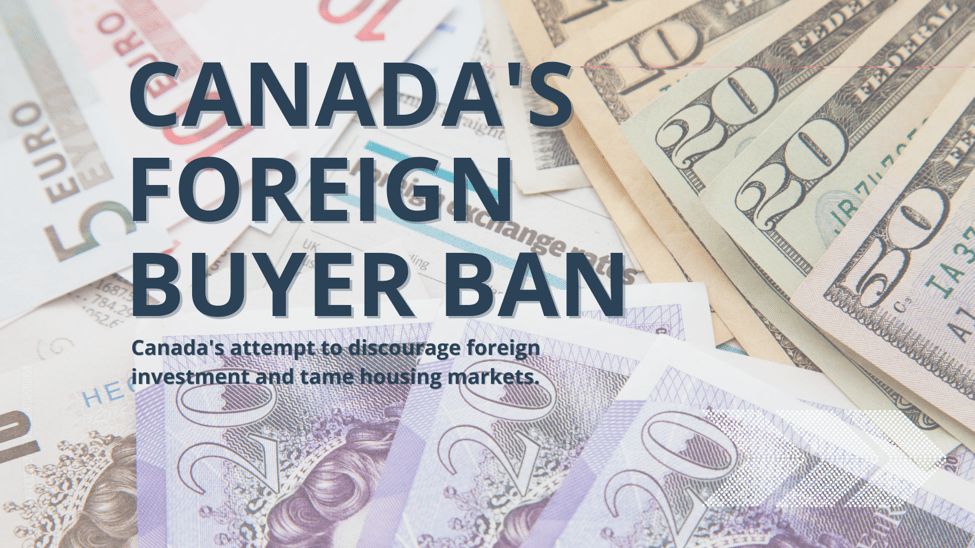In 2023, the Canadian government has implemented a new foreign buyer ban, expanding it to the entire country to address concerns about foreign buyers driving up housing prices and contributing to a shortage of housing supply. This ban applies to non-Canadian citizens, non-permanent residents, and foreign corporations, and any foreign buyers will be required to pay a significant surcharge of 35% on top of the purchase price.
The new foreign buyer ban comes as a response to the increasingly high prices of the Canadian housing market, which has been struggling to keep up with the steady increase in demand. The high demand for housing in Canada, especially in big cities like Toronto, Vancouver and Montreal, has caused prices to skyrocket, making it difficult for many Canadians to afford a home. The government believes that this new measure will help to make housing more affordable for Canadians.
Critics of the new foreign buyer ban argue that it unfairly targets foreign buyers and may even discourage foreign investment in Canada's housing market. They argue that foreign buyers bring much-needed capital into the market and that the ban could lead to a decrease in housing supply and a decrease in economic growth. Additionally, some have argued that the ban could lead to discrimination against foreign buyers, as it is difficult to distinguish between foreign and domestic buyers.
However, proponents of the new foreign buyer ban argue that it is necessary to address the issue of housing affordability in Canada. They argue that foreign buyers were driving up housing prices and contributing to a shortage of housing supply, making it difficult for local residents to afford a home. Additionally, they argue that foreign buyers were not contributing to the local economy, and that the ban would help to ensure that housing supply is directed towards local residents.
The government has also announced that it will be taking steps to increase the supply of housing in Canada. This includes the construction of more affordable housing units and the implementation of policies to encourage the development of new housing projects. The government has also promised to invest in the necessary infrastructure to support the growth of new housing developments.
In conclusion, the new foreign buyer ban implemented in Canada has the potential to address the issue of housing affordability in the country. While it has faced criticism for unfairly targeting foreign buyers and discouraging foreign investment in Canada's housing market, it is a necessary measure to help make housing more affordable for Canadians. The government's commitment to increasing the supply of housing in the country is a positive step towards making housing more accessible to all Canadians. It remains to be seen how successful this new foreign buyers ban will be in addressing the housing affordability crisis in Canada, but it is a clear indication that the government is taking the issue seriously.

